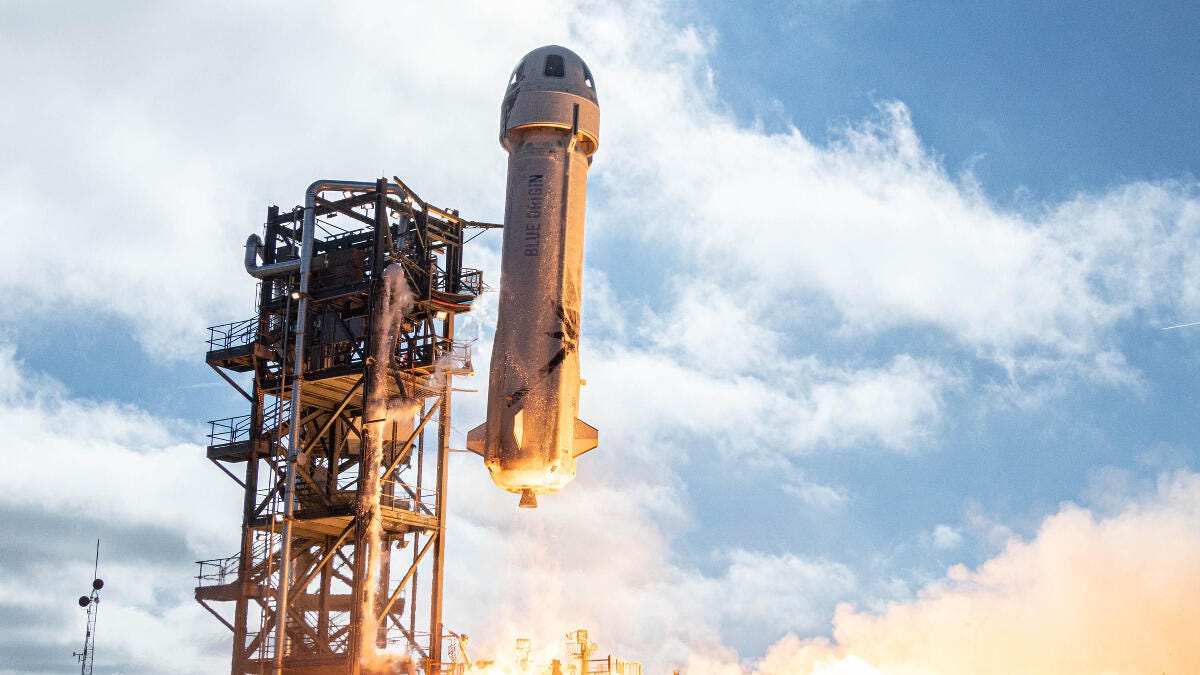Blue Origin and Jeff Bezos get FAA approval for July 20 trip to space
The summer of billionaires blasting off continues in the southwest US desert. Amazon's founder is up next.

The US government has provided the requisite thumbs up to send Jeff Bezos to space.
Jeff Bezos has the official green light to go to space on his Blue Origin New Shepard rocket, along with whoever he can fit into the spacecraft's crew capsule.
Late Monday, the Federal Aviation Administration gave the needed bureaucratic OK for the Amazon founder's rocket company to fly its first crewed mission ever.
"On July 12, the FAA approved the Blue Origin license modification to carry humans on the New Shepard launch system," the agency said in a statement.
Blue Origin and Virgin Galactic both had licenses to launch their respective spacecraft, but had to meet certain safety requirements in order to modify the license to be allowed to fly "space flight participants," otherwise known as passengers in non-FAA legalese terms.
Virgin Galactic was the first to receive such a commercial space license to launch private individuals into space. Now Blue Origin is the second to hold the same type of license from the FAA. Virgin Galactic moved up its first fully crewed flight after receiving its license, successfully sending founder Richard Branson and three employees to the edge of space on Sunday, nine days before Bezos' planned attempt.
New Shepard, a vertical liftoff rocket, will fly roughly 12 miles (19 kilometers) higher than Virgin Galactic's spaceplane design, crossing the internationally recognized border of space at 62 miles (100 kilometers) up. Virgin Galactic's system is designed to aim instead for the line that NASA uses to define the start of space, which is at 50 miles (80 kilometers) up.
The license modification was one of the final remaining hurdles standing between Jeff Bezos and destiny. On Monday, before the FAA announcement, the company shared the news that it was officially "go for launch" on July 20.
#NewShepard is go for launch on July 20 for #NSFirstHumanFlight. This is the 16th flight and first with astronauts on board. Watch live at https://t.co/7Y4TherpLr. Coverage starts at 6:30 am CDT / 11:30 UTC. pic.twitter.com/hYv68UlCqm
— Blue Origin (@blueorigin) July 12, 2021
The FAA also notes that Blue Origin's license is valid through this August.
New Shepard is set to launch from the Blue Origin testing facility in west Texas on the morning of July 20. Bezos will be joined in the crew capsule by his brother Mark; pilot, aerospace legend and member of the fabled Mercury 13 Wally Funk; and a yet-to-be-revealed auction winner who is paying $28 million for the privilege.
We will have live coverage of the whole mission, which is expected to last less than 15 minutes. You can find all the details of the mission right here.
Follow CNET's 2021 Space Calendar to stay up to date with all the latest space news this year. You can even add it to your own Google Calendar.

